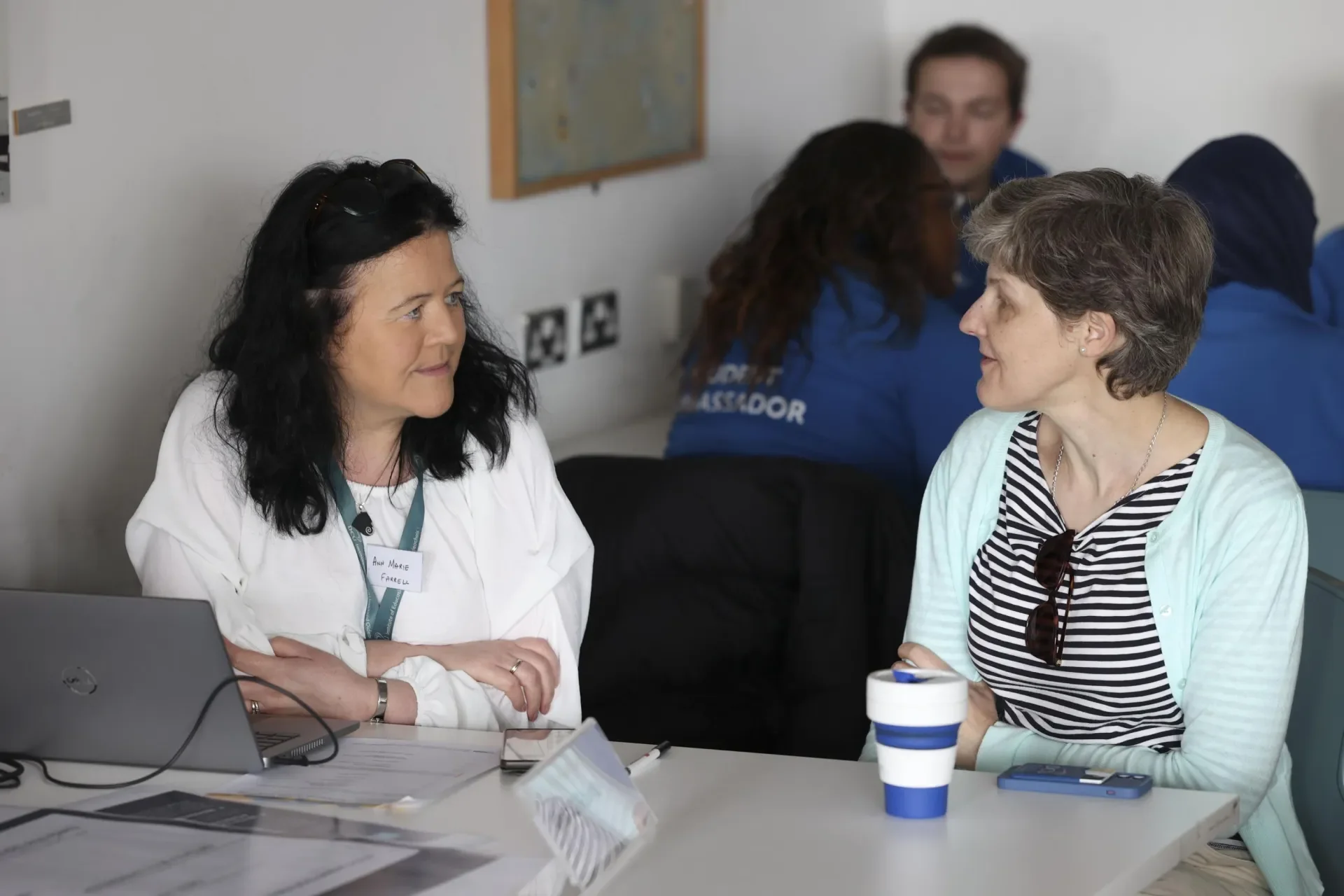
Hackathons
Activating Active Learning Hackathon 2024

Dynamic collaboration, a range of expertise and high-energy teamwork — the recent ‘Activating Active Learning’ hackathon had it all! The event offered an exciting opportunity for DCU staff to engage in an education-related hackathon. The hackathon had staff participants from across all DCU faculties and a range of professional services units working alongside expert mentors and students to investigate and provide actionable solutions for active learning in teaching.
It was a chance for the staff to engage with a range of active learning possibilities while gaining hands-on experience in the CBL format. There were a varied range of Challenge topics including Education for Sustainable Development (ESD), Active Learning, Academic Integrity, and Digital Transformation. The participants were encouraged to pitch authentic challenges from their experience.
The hackathon started with an introduction to the mentors and team formation after which the teams were guided through the Challenge-Based Learning framework in moving towards potential solutions/recommendations that would be feasible in practice. As per the hackathon process, participants were asked to Engage, Investigate and Act within a very tight timeframe - with a little bit of humour and competition to keep everyone on their toes! The event ended with teams sharing their actionable solutions with all of the attendees and with a determination to reflect on their hackathon experience.

Participant Voice
What is a Hackathon?
Hackathons are intense, time-bound events where people collaborate in groups to solve significant challenges or problems. They are increasingly being used in higher education as a means of enabling Challenge-based Learning (CBL)
A hackathon actively engages participants/students in a situation that is real, relevant and related to their environment.
Hackathons usually follow the CBL cycle of Engage, Investigate and Act. Each phase is interrelated and elicits learning through the process of collaboratively working towards authentic solutions or recommendations. Hackathons are context-dependent and can be tailored to focus on only one or two phases depending on the learners’ needs, stakeholder requirements and availability of time and resources.

Source: Workshop Basic Principles in Challenge-Based Learning. September 10th 2020 Dr Dorothea Ellinger and Siska Simon, Technical University Hamburg/GER
While the duration can vary from 1-5 days, hackathons tend to follow a broadly similar format based on the CBL cycle. Most begin with participants pitching their ideas and possibly outlining their areas of expertise. Once teams are formed, the challenge is refined and the teams investigate the problem to find an appropriate solution. The solution could be technical (such as a working prototype) or it can be based on a set of recommendations (such as a presentation or a report).
Throughout all this dynamic activity, participants are coached and guided by facilitators and mentors from industry or elsewhere who will help to tease out the solution, ask critical questions about audience and objectives, and direct teams to potential resources of relevance. At the end of the event, teams typically present their solutions to peers and often a judging panel.
Hackathons at DCU
Broadly, Challenge-Based Learning falls under Pillar 1 of the DCU Strategy 2023-2028, which focuses on a transformative learning experience. This is significant because CBL is being embedded as a core pedagogical innovation in DCU Futures, and a growing number of other programmes across DCU.
A range of disciplines and faculties are embracing the Hackathon format, for example:
- Each year, the DCU Business School runs a Hack4Change Hackathon. The recent iteration of this had around 800 students from the DCU Business School and Futures programme and featured industry mentors and DCU staff offering feedback and insights on proposed solutions linked to sustainable development goals (SDGs).
- The annual Interdisciplinary Science Hackathon is another example of a large-scale hackathon in the form of a 2-day online event where 200+ first year chemical sciences students work together to propose solutions to real-world challenges. At the end of the event, they present their challenge and scientific solutions in the form of elevator pitches to a panel of judges.
- Over the past four years undergraduate and postgraduate students from DCU Fiontar & Scoil na Gaeilge studying business, management, technology, entrepreneurship, and marketing through the medium of Irish have taken part in a hackathon on Árainn Mhór island off the north west coast of Donegal. This event, the first and only one of its kind, has seen collaboration with islanders, technology experts and mentors from various groups such as Three Ireland, Growremote.ie, Donegal County Council, Fóroige, Pleanáil Teanga Árainn Mhór, Hexa studios and others.
- In 2022, DCU Institute of Education held its own two-day virtual hackathon event called Hack to Transform. This weekend event for postgraduate research students invited participants to solve/hack an education challenge for the 21st Century.
- Another notable recent hackathon was held in March 2024, with 14 teams of students from the Faculty of Engineering and Computing, Faculty of Science and Health and Faculty of Humanities and Social Science. This inaugural ‘FIRST® LEGO® League’ Hackathon was hosted by the DCU Faculty of Engineering and Computing in partnership with the DCU Engineering Society and CreativeHUT, supported by PWC.
- The DCU Assessment hackathon was held in May 2022 where 50+ members of DCU staff joined forces to hack the following big idea: How can we design an authentic and sustainable assessment experience for all? The practicalities and impact of this event are described in the Irish Journal of Academic Practice article ‘Running a Hackathon for Academic Staff: A case study from DCU’ (O’Riordan and Gormley, 2023). See also the reflections poster.
![]()
This work by DCU Teaching Enhancement Unit is licensed under a Creative Commons Attribution 4.0 International Licence (CC BY 4.0)





